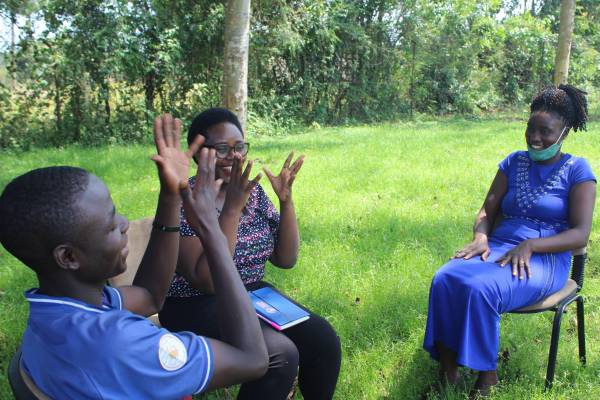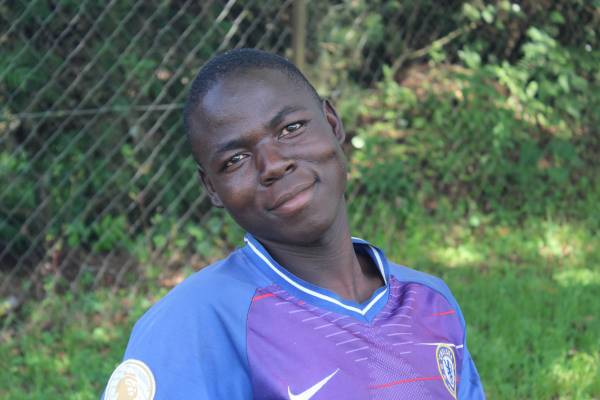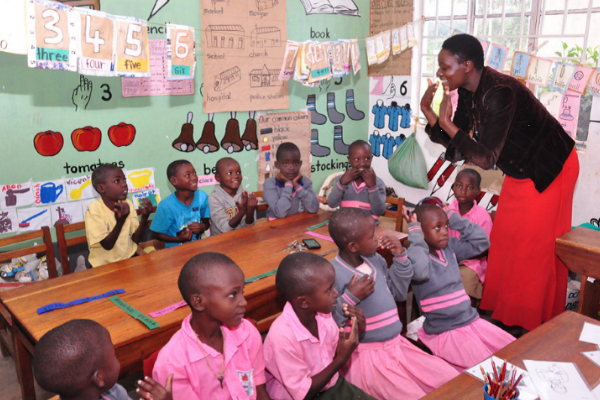Let’s talk sign language. Did you know there are more than 300 different sign languages in the world? Do you by any chance, know any of these languages or are you struggling like me? Can you imagine a world where everyone knows at least one sign language?
According to the World Federation of the Deaf, there are approximately 72 million deaf people worldwide. More than 80% of them live in developing countries, such as Uganda. One of the challenges faced by deaf people is the inability to interact with the rest of the world and only a handful could manage to communicate or provide them a service in public areas.
Deafness is simply the inability to receive spoken messages with ease. It can be a complete loss of hearing or a partial loss, which can also refer to hearing impairment. There are groups that solely rely on Sign Language. To date, there exists no successful medical or technological treatment for profound deafness. Only a few with partially impaired hearing can manage with learning aids, or rely on sign language or lip-reading techniques.
Kasiita's Dream
I recently met Ronald Kasiita, a P.7 candidate at Masaka School for children with special needs. Talking to him, along with Mrs. Sarah Nakabuye Kigongo, the school’s headmistress, left a mark on my life and made me understand the struggles deaf people in Uganda go through. On a positive note though, I got to learn to say good morning in sign language and found out that I had a sign language name.

The author learns sign language with Kassita and Sara by Atulinda Allan
Kasiita makes a living selling chapatis. He has such a business mind that he will not give out any of his produce for free. “I am so lucky to be here. This school is my home and I like it. I learned to make chapatis from the cookery and they earn me some good money. I pray that other deaf children can get a chance to go to school. Before I came to this school, life was very difficult, but you know, people like to help the pupils who are already in school, not outside” he says.

Kassita by Atulinda Allan
“The world should know that we can do what everyone else does. We are capable of greatness, we can do what other people do. I wish you people can learn sign language. Sometimes I go out to sell my chapatis and it is hard to communicate with my customers. Sometimes the chapatis are over or I haven’t made more but then people do not understand me when I explain this” Kasiita says.
Kasiita’s dream is to become a Reverend in the Church of Uganda, where he can pastor the deaf. This dream is a result of his frustration of feeling left out while no one could interpret for him the Sunday's church service. He sees himself leading his peers to the service of God and making them feel that they are as normal as the others are at the church. On the other hand, he also dreams of attending secondary school after finishing his P.7, and later university where he will study Information Technology.
Meanwhile, Mrs. Sarah, the school’s headmistress, takes the children to church on Sunday for prayers and interprets them using sign language. Unfortunately, she is the only one who is capable of speaking sign in the village. If she happens to be not available, no one will be capable to demonstrate the church mass for these children, and they will end up not attending it.
Every Sunday we go to church, every Friday Muslims go for Juma prayers, but how many of these places of worship have sign language interpreters?
Masaka School's Mission
Masaka School for Children with Special Needs, located in Bugabiro in Greater Masaka, opened its doors 15 years ago. It was founded by Francis Kamulegeya and his sister Sophie Kafeero who decided to help all children with special needs attain an education.
The school began with only 10 students, taking in children with different special needs. Some were epileptic, blind, deaf, and autistic among others. However, admissions grew bigger in number and it was hard for the school to maintain the needs of all the challenged. Eventually, the children were distributed to other schools who were also dealing with special needs cases, while Masaka decided to focus on the deaf.

Teaching deaf students at the Masaka School for Children with Special Needs - Source: masakasne.com
The Headmistress believes the lives of the children at the school are inspiring as there is no one judging the other since they all are the same. She notes that "normal" children, also deserve a chance to learn sign language as no one knows where they will end up in the future.
Deaf and blind children have been the most challenged pupils during the current Coronavirus pandemic. Following the closure of schools on March 18th, 2020, the Ugandan government announced that lessons would run on radio and TV. For deaf children, this was a real challenge as some TV stations have no sign language interpreters, while they obviously are unable to listen to lessons on the radio.
“I went to the printer and re-wrote the reading materials for my candidates and went to all their homes to drop off the materials. I also put the answers at the back of the booklets so they could use them for revision of whatever they got wrong. I have to take care of my children, even during the pandemic” Sarah Kigongo, the school headteacher recalled.
She is quick to add that the government should re-open special needs schools for classes as it is hard to teach a child with special needs on TV. The headmistress also requests that the government provides them with teachers who are well trained to deal with the deaf, explaining that the teacher-student ratio is 1:5 pupils which is not enough. In addition, there is also a need for building more classrooms and venues provided with special equipment to facilitate the education of these children.
The headteacher also wants to have sign language taught in all primary schools across the country. The Uganda National Association of the Deaf has been pushing for this amendment but to no success. Sarah added that a campaign is needed to push people to learn sign language in order to communicate with a deaf relative or even while helping a deaf stranger in the street.
International Associations Support the Deaf
The Uganda National Association of the Deaf is moving between towns in the country, teaching random people how to use sign language. The development is in line with the celebration of the International Day of Sign Languages, which is commemorated annually on September 23, as proclaimed by the UN General Assembly. This year’s commemoration is under the theme “Sign Languages are for Everyone!". The day was established to support and protect the linguistic identity and cultural diversity of all deaf people and their communicators around the world, as well as to ease education to the deaf.
This year, the World Federation of the Deaf is issuing a Global Leaders Challenge. This challenge aims to promote the use of sign languages by local, national, and global leaders in partnership with national associations of deaf people in each country, as well as other deaf-led organizations. They were expected to make a video signing the International Day of Sign Language Theme and send it to the UN so they are played via social media on September 23rd, 2020.
These celebrations convey the importance of learning sign language. Simply learning to communicate with another deaf person builds compassion and a sense of connection despite the challenges with the challenges. It's like greeting anyone in their language,; it proves that you are placing an effort to reach out and communicate with them. Doing so can make a difference especially to the challenge like Kasiita, so we can help his dreams come true and also manage to have a conversation with him.
